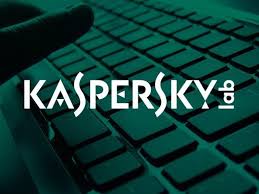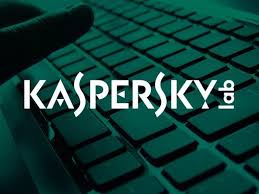
The Biden administration of the United States cranked up a national security investigation of Russia's AO Kaspersky Lab antivirus software earlier this year amid heightened fears of Russian hackers following Moscow's invasion of Ukraine, said a report published by Reuters based on source information.
According to a fourth individual, the Department of Justice submitted the case to Commerce last year, but Commerce made little headway on it until the White House and other administration officials pressed them to move forward in March.
As tensions between Moscow and the West rise, there is a risk that the Kremlin could exploit antivirus software, which has privileged access to a computer's systems, to steal important information from American computers or interfere with them.
The three persons claimed that access to the networks of federal contractors and operators of important US infrastructure like power grids is particularly troubling.
US officials have already prohibited the use of Kaspersky software by the federal government, and they may eventually force the business to take steps to mitigate the risks presented by its products or bar Americans from using them completely.
The investigation, which has not previously been revealed, demonstrates that the administration is using all of its tools to hit Moscow with even the most obscure authority in order to safeguard Americans and businesses from Russian cyberattacks.
The authorities are "really the only tool that we have to deal with the threat (posed by Kaspersky) on an economy-wide commercial basis, given our generally open market," said Emily Kilcrease, a former deputy assistant U.S. Trade Representative.
Other regulatory authorities stop short of allowing the government to prohibit private sector use of software developed by the Moscow-based firm, which has long been viewed as a severe threat to US national security by US officials.
Both the Commerce and Justice departments, as well as Kaspersky, declined to comment. For years, the business has denied any wrongdoing or secret collaboration with Russian intelligence.
The investigation has been stepped up thanks to wide new powers granted by the Trump administration, which allow the Commerce Department to prohibit or restrict transactions between US companies and "foreign enemy" countries like Russia and China.
Commerce might utilise the authorities to prohibit Kaspersky's usage, as well as the purchase of its software by US individuals, and the download of updates, through a regulation in the Federal Register.
The tools haven't been thoroughly tested. They were used by former President Donald Trump to try to prevent Americans from using Chinese social media companies TikTok and WeChat, but the actions were blocked by federal judges.
Last year, a top Justice Department official claimed the FBI was looking into hundreds of Russian enterprises, including one with "a known relationship to Russian intelligence services," to see if they posed a threat to the US supply chain. According to then-Assistant Attorney General John Demers, the department could send some of the cases to Commerce for additional action.
According to market research firm Gartner Inc, Kaspersky produced an anticipated $95.3 million in U.S. revenue in 2020, accounting for over 15% of the company's global revenue that year.
According to US national security experts, it was unclear whether the amount included Kaspersky products distributed by third parties under alternative branding, a practise that creates confusion about software's provenance.
The Department of Homeland Security banned Kaspersky's flagship antivirus product from federal networks in 2017, citing allegations of ties to Russian intelligence and a Russian law that allows Russian intelligence agencies to compel Kaspersky's cooperation and intercept communications passing through Russian networks.
Since Russia's invasion of Ukraine on February 24, which Moscow describes as a "special military operation," the perceived threat has grown.
German officials warned in March that the Kremlin may pressure the Moscow-based company into participating in cyberattacks, or that Russian government operatives could use its technology to launch cyberattacks without its knowledge. continue reading
In a statement at the time, Kaspersky stated it was a privately held corporation with no ties to the Russian government, and that the German warning was politically motivated.
According to Reuters, the US administration began informally warning some American corporations the day after Russia invaded Ukraine that Moscow may use Kaspersky software to hurt the country.
According to the Wall Street Journal, the White House ordered the Treasury Department to prepare penalties against the company, but some officials objected, fearing that it would increase the risk of Russian assaults.
(Source:www.reuters.com)
According to a fourth individual, the Department of Justice submitted the case to Commerce last year, but Commerce made little headway on it until the White House and other administration officials pressed them to move forward in March.
As tensions between Moscow and the West rise, there is a risk that the Kremlin could exploit antivirus software, which has privileged access to a computer's systems, to steal important information from American computers or interfere with them.
The three persons claimed that access to the networks of federal contractors and operators of important US infrastructure like power grids is particularly troubling.
US officials have already prohibited the use of Kaspersky software by the federal government, and they may eventually force the business to take steps to mitigate the risks presented by its products or bar Americans from using them completely.
The investigation, which has not previously been revealed, demonstrates that the administration is using all of its tools to hit Moscow with even the most obscure authority in order to safeguard Americans and businesses from Russian cyberattacks.
The authorities are "really the only tool that we have to deal with the threat (posed by Kaspersky) on an economy-wide commercial basis, given our generally open market," said Emily Kilcrease, a former deputy assistant U.S. Trade Representative.
Other regulatory authorities stop short of allowing the government to prohibit private sector use of software developed by the Moscow-based firm, which has long been viewed as a severe threat to US national security by US officials.
Both the Commerce and Justice departments, as well as Kaspersky, declined to comment. For years, the business has denied any wrongdoing or secret collaboration with Russian intelligence.
The investigation has been stepped up thanks to wide new powers granted by the Trump administration, which allow the Commerce Department to prohibit or restrict transactions between US companies and "foreign enemy" countries like Russia and China.
Commerce might utilise the authorities to prohibit Kaspersky's usage, as well as the purchase of its software by US individuals, and the download of updates, through a regulation in the Federal Register.
The tools haven't been thoroughly tested. They were used by former President Donald Trump to try to prevent Americans from using Chinese social media companies TikTok and WeChat, but the actions were blocked by federal judges.
Last year, a top Justice Department official claimed the FBI was looking into hundreds of Russian enterprises, including one with "a known relationship to Russian intelligence services," to see if they posed a threat to the US supply chain. According to then-Assistant Attorney General John Demers, the department could send some of the cases to Commerce for additional action.
According to market research firm Gartner Inc, Kaspersky produced an anticipated $95.3 million in U.S. revenue in 2020, accounting for over 15% of the company's global revenue that year.
According to US national security experts, it was unclear whether the amount included Kaspersky products distributed by third parties under alternative branding, a practise that creates confusion about software's provenance.
The Department of Homeland Security banned Kaspersky's flagship antivirus product from federal networks in 2017, citing allegations of ties to Russian intelligence and a Russian law that allows Russian intelligence agencies to compel Kaspersky's cooperation and intercept communications passing through Russian networks.
Since Russia's invasion of Ukraine on February 24, which Moscow describes as a "special military operation," the perceived threat has grown.
German officials warned in March that the Kremlin may pressure the Moscow-based company into participating in cyberattacks, or that Russian government operatives could use its technology to launch cyberattacks without its knowledge. continue reading
In a statement at the time, Kaspersky stated it was a privately held corporation with no ties to the Russian government, and that the German warning was politically motivated.
According to Reuters, the US administration began informally warning some American corporations the day after Russia invaded Ukraine that Moscow may use Kaspersky software to hurt the country.
According to the Wall Street Journal, the White House ordered the Treasury Department to prepare penalties against the company, but some officials objected, fearing that it would increase the risk of Russian assaults.
(Source:www.reuters.com)














